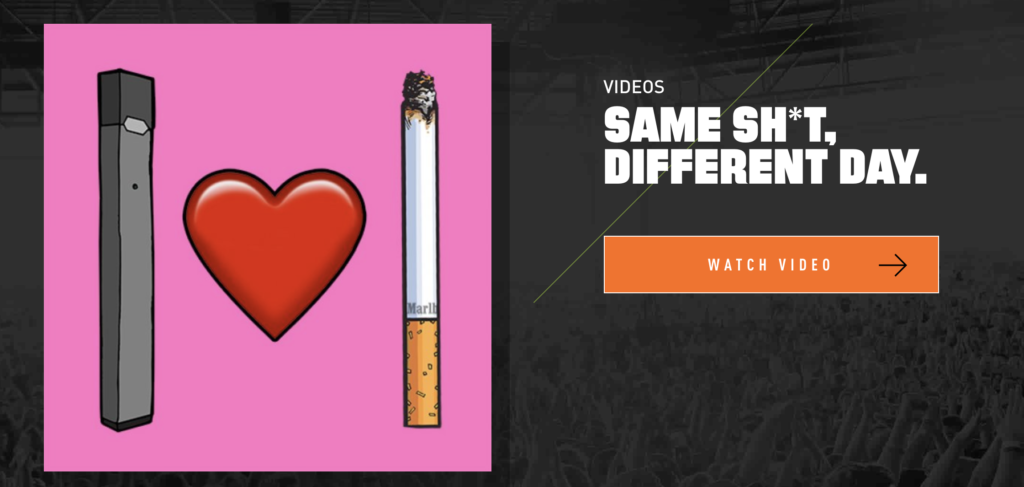
Over 25% of high school kids use vaping products according to a recent Center for Disease Control report. With nearly 20 vaping-related deaths reported, use of e-cigarettes by America’s youth is quickly becoming a public health crisis.
Campaigns such as the Truth Initiative are attempting to mitigate the effects of vaping marketing targeted at young adults. The Truth campaign helped reduce teen cigarette use by almost 20% since 2000; however, the rise of Juul and other e-cigarette brands have partially stunted their progress. By marketing e-cigarettes as the cool and fashionable alternative to traditional cigarettes, Juul has hooked the same demographic the Truth campaign fought so hard to protect. With the same tactics used for traditional cigarette marketing, Truth attempts to reveal the true malicious motives of e-cigarette brands targeting young people. E-cigarette companies hook kids in increasingly insidious ways. The Truth campaign explains that companies offer scholarships to young people, create a cult following on social media, sponsor music festivals, and use candy-like flavors to ensure kids are hooked. While e-cigarette companies cannot legally say they want to recruit teen vape users, the use of television ads, social media marketing, and festival sponsorships make Juul advertisements accessible and influential to teens.

Juul advertising and the public health crisis amongst teens demands the question of whether e-cigarette companies should advertise even if they’re following legal guidelines. Cigarette companies were banned from using these tactics in 1971, which means e-cigarette brands are coming up with new ways to legally get kids addicted to nicotine through marketing communication tactics. The onus is then on lawmakers and advocacy groups such as the Truth Initiative to regulate the ethics of e-cigarette marketing and advertising. Juul has since shut down its social media pages after spending $1 million on social media marketing after coming under suspicion that they target youth despite claiming to target “adult smokers.” Since Juul does not fall under the same 1971 regulation banning traditional cigarette ads, it now began a $10 million TV ad campaign titled “Make the Switch,” which claims Juul is a healthier alternative to traditional cigarettes for adults. There is a huge discrepancy in Juul’s advertising and actual usage since over 25% of high schoolers use e-cigarettes whereas 3% of adults said they use e-cigarettes. Since the ads will be on TV, they still have the potential to reach and hook more young teens to e-cigarettes.

Sources Below:
https://www.ispot.tv/ad/oSWO/juul-roy
https://www.vox.com/2019/1/25/18194953/vape-juul-e-cigarette-marketing

4 Responses to Ethics of E-Cigarette Marketing and Advertising